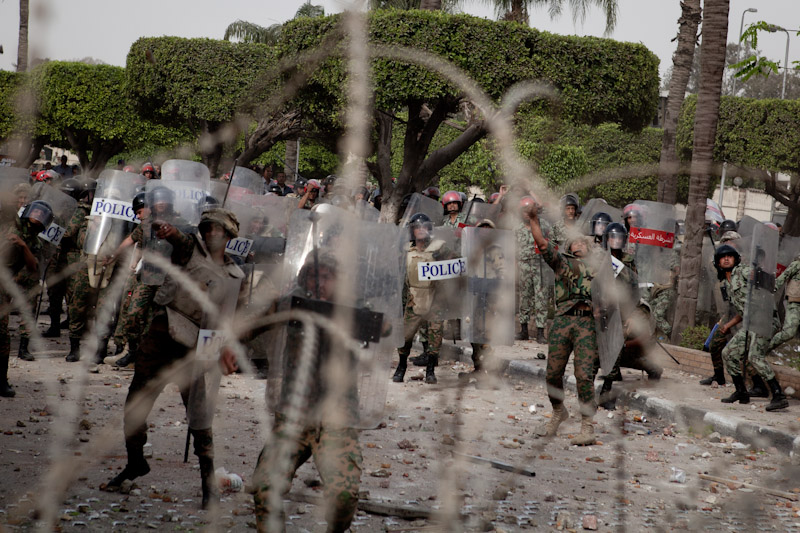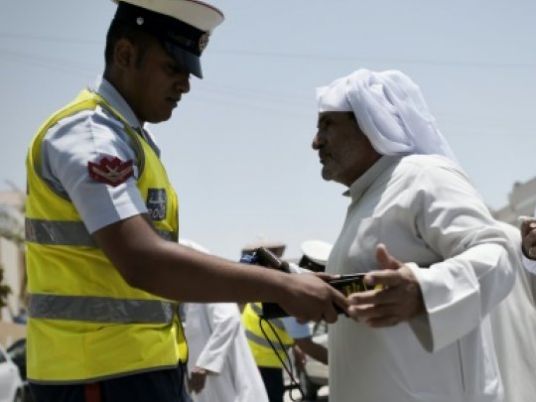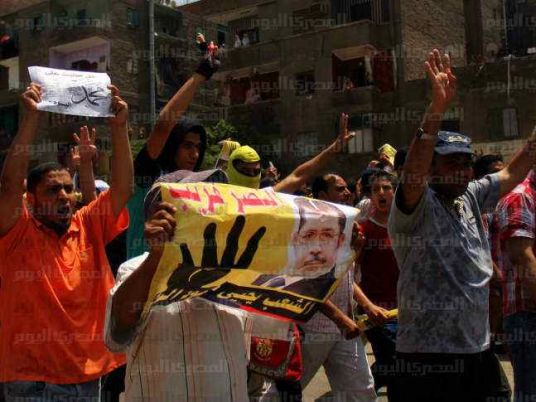
While the country is preoccupied with the presidential election set for Wednesday and Thursday, certain activists, politicians and human rights groups are trying to keep the spotlight on dozens of protesters arrested following the early May clashes in front of the Defense Ministry in Abbasseya.
Twelve people were killed, including a police officer, in the fighting between military forces and anti-military protesters.
In a Saturday press conference, the No to Military Trials Campaign condemned the Supreme Council of the Armed Forces for referring civilians to military tribunals that lack the minimum standards of a fair trial.
The group posted a statement written by detainees saying that the military council arrested them without charge inside and around the Nour Mosque, and subsequently tortured them in detention.
The group also said it has documented at least 320 arrests and hundreds of other cases of demonstrators being tortured or injured while military forces dispersed the Abbasseya protest with excessive force and carried out random arrests of civilians in the area.
Many detainees were arrested from hospitals where they had been receiving emergency medical attention, including doctors and paramedics treating the injured at field hospitals in the area, the statement said, adding that other violations were committed against journalists covering the protest.
No to Military Trials demanded that authorities immediately release all detainees, drop all charges against them, stop all forms of brutality against them, and ensure their safety and the provision of medical care for those injured.
The campaign also demanded that authorities not impede the supply of food and medicine to detainees, and to release a list of their full names and whereabouts so that their families and lawyers can assist them.
On Saturday Human Rights Watch, an international NGO, issued a report based on interviews with many who had been arrested and subsequently released in the clashes, along with their lawyers. According to the report, they said “military soldiers beat and tortured protesters they arrested at a demonstration near the Defense Ministry.”
The report said many of those released gave consistent accounts of torture and beatings while in detention.
“On [4 May], after the protest turned violent, military officers arrested at least 350 protesters, including 10 children and 16 women,” the report reads.
“When they first took me inside the military base they started beating me with sticks and with the end of a gun in my back. They beat me for around an hour. I had long hair at the time and at one point the soldier grabbed me by the hair and banged my head against the wall, again and again. They hit me in the kidneys; everywhere on my body with sticks and with their fists and they kicked me,” the report quoted a protester, Abdel Hamid Mekkawy, as saying.
On Sunday, presidential candidate Khaled Ali went on hunger strike for one day in solidarity with the Abbasseya detainees, who have announced an open-ended hunger strike as of Sunday until their demands for the immediate release of all detainees and abolition of military trials for civilians are met.
In addition, over 30 journalists joined the hunger strike in solidarity with the detainees, and 23 parties and coalitions announced a symbolic strike, including No to Military Trials, the 25 January Revolution Youth Coalition, the Revolutionary Socialists, the Egyptian Current Party, the Free Islamic Coalition and the Salafi Front.
Edited translation from Al-Masry Al-Youm



